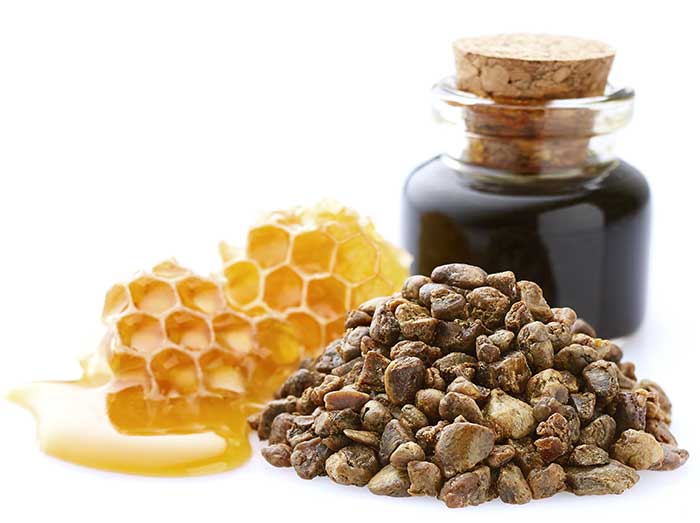Origin and composition of propolis
Propolis is a resinous substance produced by bees from resins collected from various plants, such as trees and flowers. They mix these resins with wax and specific enzymes, resulting in a sticky substance with varied colors. The composition of propolis may vary according to the geographic region and the plant sources available to bees. However, in general, propolis contains a unique combination of flavonoids, phenolic acids, terpenoids and other bioactive compounds.
Antimicrobial and immunomodulatory properties
One of the best known properties of propolis is its antimicrobial activity. Scientific studies have shown that propolis has the ability to inhibit the growth of bacteria, viruses and fungi, which makes it an effective natural agent against infections. In addition, propolis also has immunomodulatory properties, that is, it can help regulate the immune system, strengthening the body’s defenses.
Anti-inflammatory and antioxidant action
Another significant benefit of propolis is its anti-inflammatory action. Compounds in propolis help reduce inflammation in the body, which can be beneficial for individuals with chronic inflammatory conditions such as arthritis and cardiovascular disease. In addition, propolis also has antioxidant properties, which means that it can fight free radicals and protect cells from oxidative stress, helping to prevent cell damage and premature aging.
Healing and regenerative effect
Propolis has been widely used in skin care products due to its healing and regenerative effect. Studies have shown that propolis can speed up the wound healing process, promote tissue regeneration, and help reduce scar formation.

These properties are attributed to the active compounds present in propolis, which stimulate collagen production and the activity of cells involved in the healing process.
Anticancer potential and cardiovascular protection
Recent research suggests that propolis may also have anticancer potential. In vitro and animal studies have shown that propolis can inhibit the growth of cancer cells, induce apoptosis (programmed cell death) and inhibit angiogenesis (formation of new blood vessels that feed tumors). However, more research is needed to fully understand the mechanisms and therapeutic potential of propolis in treating cancer in humans. In addition, propolis can also help protect the heart and blood vessels, reducing the risk of cardiovascular diseases such as atherosclerosis and hypertension.
Use and Precautions
Propolis can be found in different forms, such as liquid extracts, capsules, ointments and even oral hygiene products. It is important to follow the usage recommendations provided by the manufacturer or consult a healthcare professional before starting propolis supplementation. Some people may be allergic to propolis, so it is essential to do an allergy test before consuming it regularly. In addition, propolis can interact with certain medications, so it is essential to inform the doctor about its use.

a natural treasure
Propolis is a natural treasure packed with health benefits. Its broad spectrum of properties, which include antimicrobial, anti-inflammatory, antioxidant, healing and anticancer potential, make it a valuable ally to promote a healthy life. However, it is important to remember that propolis is not a substitute for proper medical care, and its use should be discussed with a healthcare professional to ensure safety and effectiveness. Enjoy nature’s gifts and discover how propolis can make a difference in your health and well-being.






